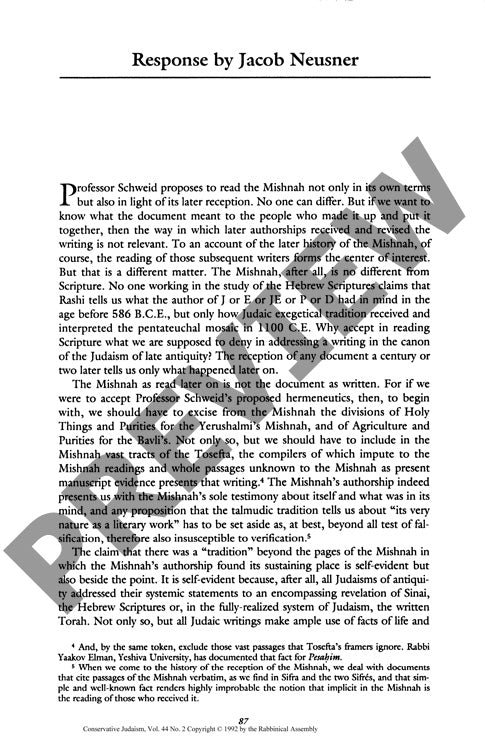Response
Couldn't load pickup availability
Ancient texts like the Mishnah demand to be read on their own terms, not primarily through the lens of their later interpretations. Jacob Neusner challenges Professor Schweid's hermeneutical approach, arguing that viewing the Mishnah through its subsequent reception history obscures the original authorial intent. Drawing parallels to Hebrew Scripture studies, Neusner demonstrates how later interpretive frameworks, while valuable for understanding historical reception, cannot reliably illuminate the meaning intended by ancient authors. His methodology treats the Mishnah as a closed system that must first be understood independently before examining its relationship to later works. Neusner positions the Mishnah as a comprehensive utopian vision comparable to Plato's Republic, one that articulates complete political, economic, and social structures for ancient Israel. This systematic analytical approach extends across his broader scholarly examination of rabbinic texts including Tosefta, Yerushalmi, and Genesis Rabbah. While acknowledging scholarship's sociological dimensions, Neusner defends his focus on how ancient sages constructed systematic worldviews to address urgent questions of their time. This methodological debate carries significant implications for contemporary approaches to studying rabbinic literature and interpreting ancient Jewish texts.

More Information
-
Physical Description
-
Publication Information
Published 1992
ISBN
-
Publication Credits
Jacob Neusner

